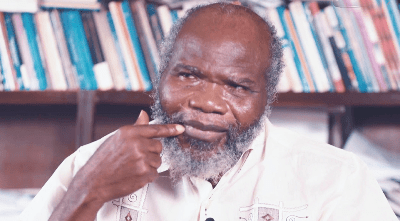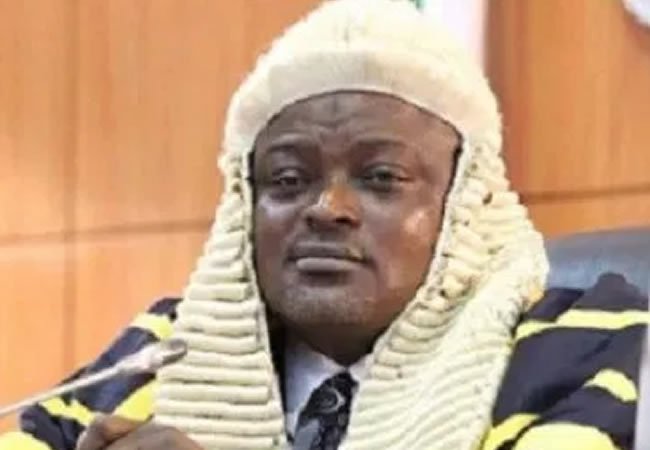Headlines
Powerful Earthquake Hits Morocco, Thousands Feared Killed

A rare, powerful earthquake that struck Morocco toppled buildings in mountainous villages and ancient cities not built to withstand such force. More than 2,000 people were killed, and the toll is expected to rise as rescuers struggled Saturday to reach hard-hit remote areas.
The 6.8-magnitude quake, the biggest to hit the North African country in 120 years, sent people fleeing their homes in terror and disbelief late Friday.
One man said dishes and wall hangings began raining down, and people were knocked off their feet. The quake brought down walls made from stone and masonry, covering whole communities with rubble.
The devastation gripped each town along the steep and winding switchbacks of the High Atlas in similar ways: homes folding in on themselves and mothers and fathers crying as boys and helmet-clad police carried the dead through the streets.
Remote villages like those in the drought-stricken Ouargane Valley were largely cut off from the world when they lost electricity and cellphone service. By midday, people were outside mourning neighbours, surveying the damage on their camera phones and telling one another “May God save us.”
Hamid Idsalah, a 72-year-old mountain guide, said he and many others remained alive but had little future to look forward to. That was true in the short-term — with remnants of his kitchen reduced to dust — and in the long-term — where he and many others lack the financial means to rebound.
“I can’t reconstruct my home. I don’t know what I’ll do. Still, I’m alive, so I’ll wait,” he said as he walked through the desert oasis town overlooking red rock hills, packs of goats and a glistening salt lake. “I feel heartsick.”
Famed mosque damaged
In historic Marrakech, people could be seen on state TV clustering in the streets, afraid to go back inside buildings that might still be unstable.
The city’s famous Koutoubia Mosque, built in the 12th century, sustained damage, but the extent was not immediately clear. Its 69-metre minaret is known as the “roof of Marrakech.”
Moroccans also posted videos showing damage to parts of the famous red walls that surround the old city, a UNESCO World Heritage site.
At least 2,012 people died, mostly in Marrakech and five provinces near the quake’s epicentre, Morocco’s Interior Ministry reported Saturday evening. Another 2,059 people were injured — 1,404 critically — the ministry said.
“The problem is that where destructive earthquakes are rare, buildings are simply not constructed robustly enough to cope with strong ground shaking, so many collapse, resulting in high casualties,” said Bill McGuire, professor emeritus of geophysical and climate hazards at University College London.
About a dozen Canadians attending a UNESCO conference in Marrakech are safe, according to John Norman, the mayor of Bonavista, N.L. He was awoken in his hotel room Friday night.
“I think everyone is in a bit of shock,” Norman, who is also the chair of the Discovery UNESCO Global Geopark on the Bonavista Peninsula, told CBC News.
Canada’s foreign affairs minister, Mélanie Joly, urged Canadians in Morocco to register with Global Affairs Canada. She said Canadians there who need help should contact the federal Emergency Watch and Response Centre, which can provide emergency consular assistance.
Marrakech resident Amanda Mouttaki was talking to family members living outside the country when the earthquake hit on Friday. She initially thought a plane might be coming down, as she and her husband live near the airport.
“Things started falling off the walls,” Mouttaki, who is originally from Michigan, told CBC News Network on Saturday.
She and her husband quickly grabbed their five-year-old son and fled into the street. “Everybody was on the streets, just crying and trying to figure out what happened,” she said.
In a sign of the huge scale of the disaster, Morocco’s King Mohammed VI ordered the armed forces to mobilize specialized search-and-rescue teams and a surgical field hospital, according to a statement from the military.
The king said he would visit the hardest-hit area on Saturday, but despite an outpouring of offers of help from around the world, the Moroccan government had not formally asked for assistance — a step required before outside rescue crews could deploy.
The epicentre of Friday’s tremor was near the town of Ighil in Al Haouz Province, roughly 70 kilometres south of Marrakech. Al Haouz is known for scenic villages and valleys tucked in the High Atlas.
ADVERTISEMENT
Police, emergency vehicles and people fleeing in shared taxis spent hours traversing unpaved roads through the High Atlas in a stop-and-go manner, often exiting their cars to help clear giant boulders from routes known to be rugged and difficult long before Friday’s earthquake.
In Ijjoukak, a village in the area surrounding Toubkal, North Africa’s tallest peak, residents estimated nearly 200 buildings had been levelled.
Couch cushions, electric cords and grapes were strewn in giant piles of rubble alongside dead sheep, house plants and leaning doors wedged between boulders. Relatives from the town and those who had driven from major cities cried while they wondered who to call as they reckoned with the aftermath and a lack of food and water.
“It felt like a bomb went off,” 34-year-old Mohamed Messi said.
ADVERTISEMENT
Morocco will observe three days of national mourning with flags at half-mast on all public facilities, the official news agency MAP reported.
World offers help
World leaders offered to send aid or rescue crews as condolences poured in from the G20 summit in India, countries around Europe, the Mideast and beyond.
Turkey, where powerful earthquakes in February killed more than 50,000 people, said it was ready to provide support. France and Germany, with large populations of people of Moroccan origin, also offered to help.
In an exceptional move, neighbouring Algeria offered to open its airspace to allow eventual humanitarian aid or medical evacuation flights to travel to and from Morocco.
Algeria closed the airspace when its government severed diplomatic ties with Morocco in 2021 over a series of issues. The countries have a decades-long dispute involving the territory of Western Sahara.
The U.S. Geological Survey said the quake had a preliminary magnitude of 6.8 when it hit at 11:11 p.m. local time, with shaking that lasted several seconds.
The U.S. agency reported that a 4.9-magnitude aftershock hit 19 minutes later. The collision of the African and Eurasian tectonic plates occurred at a relatively shallow depth, which makes a quake more dangerous.
Earthquakes are relatively rare in North Africa. Lahcen Mhanni, head of the Seismic Monitoring and Warning Department at the National Institute of Geophysics, told 2M TV that the earthquake was the strongest ever recorded in the region.
In 1960, a 5.8-magnitude tremor struck near the Moroccan city of Agadir, causing thousands of deaths. That quake prompted changes in construction rules in Morocco, but many buildings — especially rural homes — are not built to withstand such tremors.
In 2004, a 6.4-magnitude earthquake near the Mediterranean coastal city of Al Hoceima left more than 600 dead.
Friday’s quake was felt as far away as Portugal and Algeria.
ABC News
Headlines
Abiola Cannot Be Recognised As Former President; He Was Never Sworn-in – Gen Ishola Williams

By Eric Elezuo
One of the prime actors of the June 12, 1993 incidents, General Ishola Williams, has said that much as Chief MKO Abiola wrong was created having won the election, and denied victory, he cannot be recognized as a former President of Nigeria.
Gen Williams made his revelation while speaking as a guest on Channels television socio-political programme, Inside Source.
He maintained that only those who were sworn in that recognised as former presidents, and Abiola was never sworn in.
“Abiola cannot be recognised as former president because he was never sworn in.
The General, who said that he resigned from the army as a result of the wholesome reception given to General Sani Abacha, when he overthrew Chief Ernest Shonekan-led Interim National Government, contrary to expectation, also picked flaws in the narratives given by former Military President Ibrahim Babangida, in his recently launched book, A Journey In Service.
Williams rose in the army to become the Commandant of Army Signals, Commander of Training and Doctrine (TRADOC) and Chief of Defence Training and Planning, from where he resigned.
Headlines
Breaking: Supreme Court Recognises Martin Amaewhule As Rivers Assembly Speaker, Orders CBN to Stop Releasing Funds to State

By Eric Elezuo
The Supreme Court of Nigeria has in its ruling on Friday recognised Hon Martins Amaewhule as the authentic speaker of the Rivers State House of Assembly, mandating him to urgently resume sitting with elected members of the assembly.
The apex court also ordered the Central Bank of Nigeria to stop releasing to the Rivers State government until a proper assembly is constituted.
Details soon…
Headlines
Obasa Storms Lagos Assembly with Armed Men, Claims He’s Still Speaker

Tension escalated at the Lagos State House of Assembly on Thursday as impeached Speaker Mudashiru Obasa made a dramatic return to reclaim his position.
Accompanied by heavily armed men, Obasa stormed the Assembly complex in a bold move that has thrown the State’s legislature into turmoil.
In a stunning turn of events, security details assigned to the substantive Speaker, Rt. Hon. Mojisola Meranda, were abruptly withdrawn on Thursday morning, clearing the path for Obasa’s controversial comeback.
Sources revealed that the Inspector General of Police (IGP) ordered the withdrawal of all security operatives attached to Meranda, leaving her exposed in the midst of an intensifying power struggle.
The Speaker’s Special Adviser on Information, Mr. Victor Ganzallo, expressed concern over the security vacuum created by the withdrawal of personnel.
“In the early hours of Thursday, we woke up to the startling news that all security details assigned to Madam Speaker, Mojisola Meranda, had been withdrawn.
This includes the police and DSS officers, leaving her exposed to threats amid the ongoing speakership crisis,” Ganzallo stated.
He further called on Governor Babajide Sanwo-Olu, as the State’s Chief Security Officer, to intervene urgently to prevent a complete breakdown of law and order within the Assembly.
“The withdrawal of security personnel has left the Assembly naked and vulnerable at a critical time. Urgent action is needed to restore order,” he pleaded.
With the speakership battle taking a dramatic new turn, political watchers are keenly observing how the crisis will unfold in the coming days.






